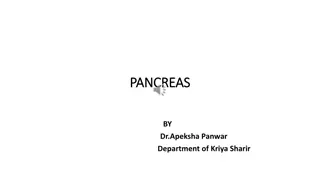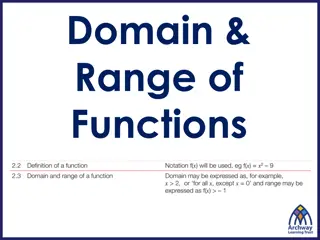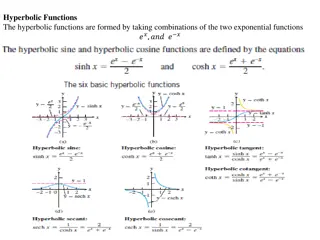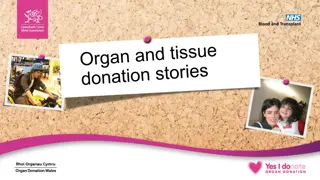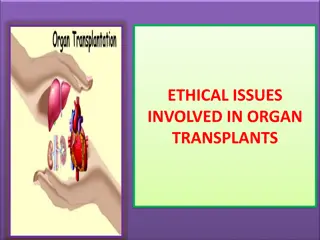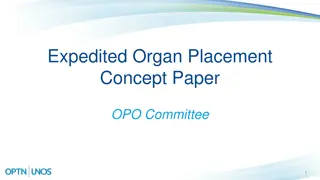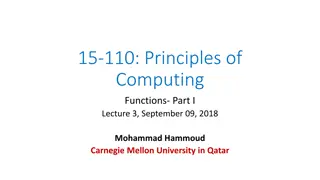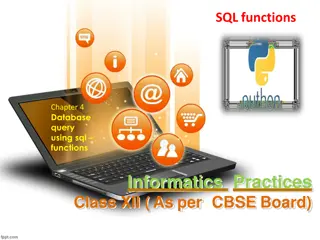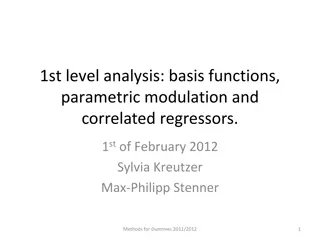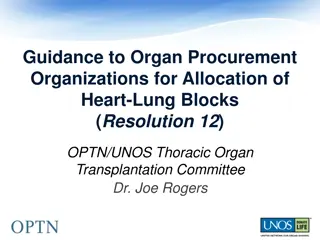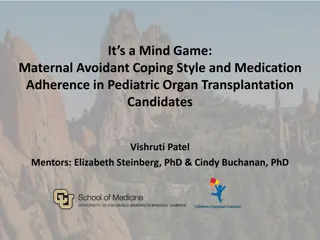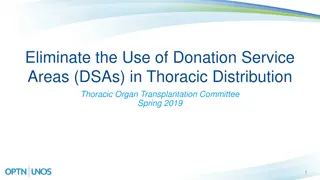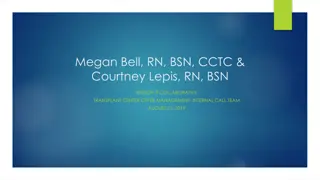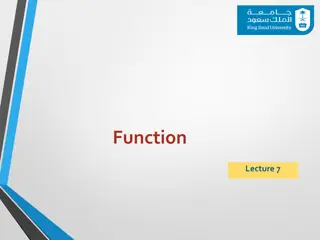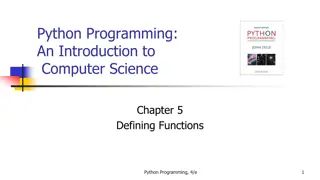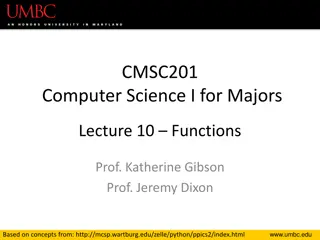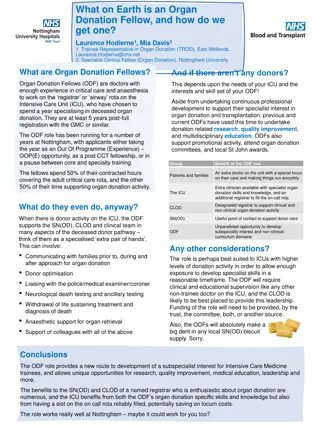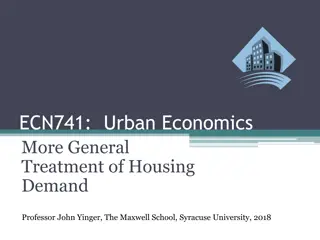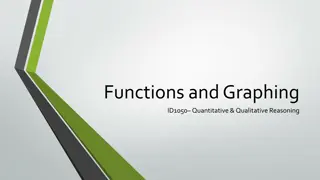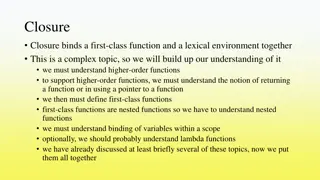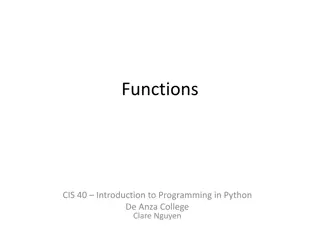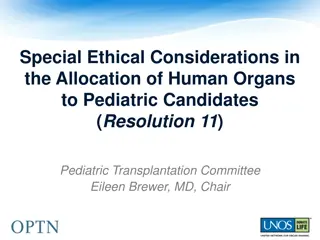Understanding Shock: Causes, Symptoms, and Stages
Shock is a critical condition caused by an imbalance between cellular oxygen supply and demand, leading to organ dysfunction. Compensatory responses include increased heart rate, vasoconstriction, and hormonal adjustments. Recognizable features of shock include tachycardia, hypotension, cool clammy
3 views • 27 slides
Should We Allow a Market for Transplant Organs?
Analyzing the dilemma of organ shortages in the US, this content explores the ethical dimensions of creating a market for transplant organs. Through discussions on economics, ethics, and decision-making processes in allocating scarce organs, it delves into the complexities of determining who should
0 views • 22 slides
Understanding Organ Donation in Hong Kong
Explore the various aspects of organ donation in Hong Kong, including suitable organs for donation, living and cadaveric donation processes, low donation rates, common misconceptions, and how to register as an organ donor through the Centralised Organ Donation Register. Discover the opt-in and opt-o
3 views • 28 slides
Scandiatransplant Activities and Awards in 2023
Scandiatransplant is the organ exchange organization serving Denmark, Finland, Iceland, Norway, Sweden, and Estonia. They facilitate kidney, liver, thoracic, pancreas, and islet transplantations. The organization aims to maintain transparency and ethical practices while operating a common waiting li
2 views • 45 slides
Engaging Our Community: Organ Donation Initiatives and Success Stories
Two impactful initiatives in the healthcare sector aimed at promoting organ and tissue donation within communities are highlighted. The first initiative involves hosting luncheons with faith leaders to educate and raise awareness, resulting in increased support for donation. The second initiative sh
0 views • 4 slides
Comprehensive Overview of Pancreas Function and Structure
Pancreas is a vital organ in the abdomen with dual exocrine and endocrine functions. As an exocrine organ, it secretes digestive enzymes and bicarbonates into the duodenum for food breakdown. In its endocrine role, the pancreas regulates blood sugar levels by secreting insulin, glucagon, somatostati
1 views • 16 slides
Fascinating Facts About Iguanas: From Skills to Survival
Iguanas, part of the Iguanidae family, are unique reptiles with special skills like tree climbing and predator evasion. They face threats due to human consumption and environmental hazards, such as oil spills for marine iguanas. Their sensory organ, Jacobson's organ, helps them navigate their surrou
0 views • 10 slides
Livestock Marketing Functions and Classification
Livestock marketing involves various functions such as exchange, physical supply, facilitative functions like grading, transportation, storage, and more. These functions are classified into primary, secondary, and tertiary functions based on their roles. Assembling, processing, distribution, and equ
3 views • 23 slides
Understanding Domain and Range of Functions
Understanding functions involves exploring concepts such as domain, range, and algebraic inputs. This content covers topics like constructing functions, common functions like quadratic and trigonometric, and solving functions based on given domain and range. It also provides practice questions to te
1 views • 21 slides
Understanding Hyperbolic Functions and Their Inverses
This content delves into the world of hyperbolic functions, discussing their formation from exponential functions, identities, derivatives, and inverse hyperbolic functions. The text explores crucial concepts such as hyperbolic trigonometric identities, derivatives of hyperbolic functions, and integ
0 views • 9 slides
Organ Donation Awareness and Education Activities
Explore the importance of organ donation through engaging activities, such as quizzes on organ and tissue donation facts and myths. Learn about the various organs and tissues that can be donated, the significance of registering on the NHS Organ Donor Register, and the impact of organ donation in sav
1 views • 26 slides
Ethical Issues in Organ Transplants
Organ transplantation involves the moving of organs from one body to another to replace damaged or absent organs. The process includes cadaveric and living organ donations, with various transplantable organs like lungs, kidneys, heart, and more. There are ethical issues surrounding organ donation de
0 views • 16 slides
Expedited Organ Placement Concept Paper - Addressing Critical Transplant System Issues
This concept paper outlines a proposal to address key challenges in the current organ transplant system, such as lack of transparency and consistency in organ placement. The focus is on developing an expedited placement system with specific triggers and qualifications to improve access to organs for
0 views • 9 slides
Understanding Functions in Python: Basics and Usage
In this lecture on functions in Python, the focus is on the basics of defining and using functions. The session covers the formal definition of functions, parameters, local and global scopes of variables, return values, and pass-by-value concept. It emphasizes the importance of proper indentation in
1 views • 28 slides
Understanding Functions: Tables, Graphs, and Formulas Based on Functions, Data, and Models
Explore the world of functions through tables, graphs, and formulas in this presentation based on the book "Functions, Data, and Models" by S.P. Gordon and F.S. Gordon. Learn how functions in the real world work, understand the relationship between variables, and see different representations of fun
0 views • 29 slides
Understanding SQL Functions for Database Queries
SQL functions are essential elements in performing actions and obtaining results in a database query. They come in two main types: scalar functions and aggregate functions. Scalar functions operate on single values, while aggregate functions operate on sets of data. Examples of SQL functions include
0 views • 14 slides
National Histopathology Service for Organ Retrieval and Transplantation - Audit Findings
The need for a national histopathology service for organ retrieval and transplantation is highlighted, with a focus on the importance of histopathological analysis in assessing donor organ quality and identifying lesions for further investigation. The audit findings show the incidence of urgent hist
0 views • 17 slides
Understanding Basis Functions and Hemodynamic Response Functions in fMRI Analysis
This content discusses the use of basis functions, parametric modulation, and correlated regressors in the first-level analysis of fMRI data processing. It delves into the concept of temporal basis functions for modeling complex functions of interest, such as the canonical hemodynamic response funct
1 views • 26 slides
Enhancing Heart-Lung Allocation Policy for Organ Transplantation
This project focuses on improving the allocation of heart-lung blocks for organ transplantation by providing clear guidelines to Organ Procurement Organizations (OPOs). The goal is to ensure consistent practices among OPOs across the country, promoting fairness and efficiency in organ allocation. Th
0 views • 11 slides
Understanding Maternal Avoidant Coping and Medication Adherence in Pediatric Organ Transplant Candidates
Maternal avoidant coping styles may impact medication adherence in pediatric organ transplantation candidates. Challenges in the field include organ shortage, patient non-adherence, and identifying health risk factors for effective organ allocation. Parents' coping behavior factors of stress include
0 views • 14 slides
Modernizing Organ Donation Laws: The Uniform Anatomical Gift Act of 2006
The Uniform Anatomical Gift Act (UAGA) of 2006 aims to enhance the donation process by introducing new definitions, emphasizing personal autonomy, and providing clearer rules. It addresses the need for uniformity, updates to reflect current practices, and modernizes the Act to ensure a smoother orga
0 views • 14 slides
Bringing Life Through Organ Donation: Two-Week Action Plan
Over the next two weeks, the Gift of Life aims to refocus on connecting with palliative care teams, educate ICU staff on the importance of early referrals, raise awareness in the Caribbean community about organ donation, coordinate information sessions with OPO liaisons, and encourage colleagues to
0 views • 64 slides
Proposal to Remove Donation Service Areas in Thoracic Organ Transplantation
The proposal aims to ensure compliance with regulations by eliminating Donation Service Areas (DSAs) in thoracic organ allocation policies. The suggested solutions involve replacing DSAs with a 250 NM distance from the donor hospital, removing language allowing prioritization of sensitize heart cand
0 views • 10 slides
Organ Offer Management at Keck USC Transplant Institute
Keck USC Transplant Institute is a multi-organ transplant center with a dedicated team managing organ offers. The team structure includes RN-Transplant Coordinators, Call Team Managers, and Donor Allocation Specialists. They handle a range of tasks from reviewing offers with physicians/surgeons to p
0 views • 18 slides
Understanding Functions in Coding with Minecraft
Functions in coding are self-contained sets of instructions that perform specific tasks within a computer program. They allow for code reuse and save time by writing instructions once as a function and calling it whenever needed. This content covers the purpose of functions, how they save time when
0 views • 30 slides
Organ Donation and Transplantation Myths True or False
Explore common myths and facts about organ donation and transplantation through a fun true or false game. Learn the truth behind misconceptions like who can be a donor, the possibility of brain transplants, where to register as a donor, fairness in organ allocation, and the impact on funeral arrange
1 views • 14 slides
Cell Biology Overview and Organ Systems in Biology Paper 1
The Biology Paper 1 content covers topics such as cell specializations, cell division, organelles, enzyme functions, and organ systems including the cardiovascular system. It discusses key concepts like stem cells, mitosis, diffusion, osmosis, active transport, and various cell components such as nu
0 views • 8 slides
Exploring Bioelectricity and Regenerative Medicine in Morphogenesis
Delve into the fascinating world of bioelectricity, regenerative medicine, and morphogenesis as discussed by Joel Grodstein in EE.123 at Tufts University. Discover the origins of bioelectricity, its relevance in neuronal functions, cardiac bioelectricity, and its role in morphogenesis. Explore the p
0 views • 53 slides
Understanding Composition of Functions in Mathematics
Learn how to perform operations with functions, find composite functions, and iterate functions using real numbers. Explore the composition of functions through examples and understand the domain of composite functions. Enhance your mathematical skills by mastering operations like addition, subtract
0 views • 10 slides
Understanding Functions in C Programming
Functions play a vital role in C programming by enabling the execution of specific tasks. They can be pre-defined or user-defined, offering flexibility and efficiency in code organization and execution. Pre-defined functions are already available in C libraries, while user-defined functions are cust
0 views • 46 slides
Understanding Composite and Inverse Functions
Learn about composite functions, inverse functions, and how to find their compositions and inverses through examples and step-by-step explanations. Explore the concept of forming composite functions, verifying inverse functions, and finding the inverse of a function using interchange and solving met
0 views • 15 slides
Introduction to Defining Functions in Python Programming
This chapter introduces the concept of defining functions in Python programming. It covers the importance of dividing programs into sets of cooperating functions, defining new functions in Python, understanding function calls and parameter passing, and reducing code duplication through the use of fu
0 views • 78 slides
Understanding Functions in Computer Science I for Majors Lecture 10
Expanding on the importance of functions in programming, this lecture delves into dividing code into smaller, specific pieces, defining functions in Python, understanding function calls and parameter passing, and using functions to enhance code modularity. Key topics covered include control structur
0 views • 62 slides
Understanding the Role of Organ Donation Fellows in Intensive Care Units
Organ Donation Fellows (ODFs) are experienced doctors specializing in deceased organ donation, spending time on the ICU rota and supporting organ donation activities. They assist in donor optimization, communication with families, and organ retrieval, benefiting both ICU patients and the healthcare
0 views • 4 slides
Understanding Housing Demand Theory in Urban Economics
Explore the nuances of housing demand theory in urban economics, covering topics such as alternative utility functions, exponential density functions, maximizing bid functions, and comparative statics. Delve into Stone-Geary and CES utility functions, their implications on demand functions, and the
0 views • 35 slides
Understanding Functions and Graphing in Mathematics
Functions and graphing play a crucial role in quantitative and qualitative reasoning. We explore the concept of points on a graph, coordinates, relations, functions, and ways to express functions. Utilizing visual aids and analogies, we delve into the importance of coordinates, the distinction betwe
0 views • 10 slides
Understanding Closures, Lambda Functions, and Higher-Order Functions in Programming
In programming, closures bind functions and lexical environments, while lambda functions are nameless and used by higher-order functions. Higher-order functions operate by applying other functions, such as map and fold functions. Example implementations in LISP demonstrate how these concepts are uti
0 views • 16 slides
Introduction to Python Functions: Overview and Usage
In this module, we delve into Python functions, exploring common built-in functions and how to create custom functions. We learn the properties of functions, how to coordinate multiple functions, and concepts of modularization. Discover the essence of functions in Python programming through practica
0 views • 17 slides
Ethical Considerations in Pediatric Organ Allocation
Addressing the lack of an ethical framework for pediatric organ allocation, this project aims to provide evidence-based support for prioritizing pediatric candidates. By collaborating with experts and committees, the goal is to establish a permanent framework that respects ethical and clinical judgm
0 views • 11 slides
Understanding Functions in C Programming
Functions play a crucial role in C programming, allowing for modularity and reusability of code. This content covers the basics of functions, creating custom functions, passing arguments, returning values, and the anatomy of a C function. Learn about defining functions, passing arguments effectively
0 views • 24 slides





